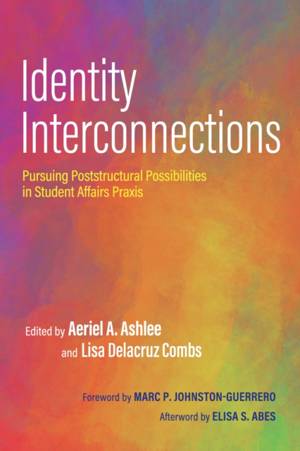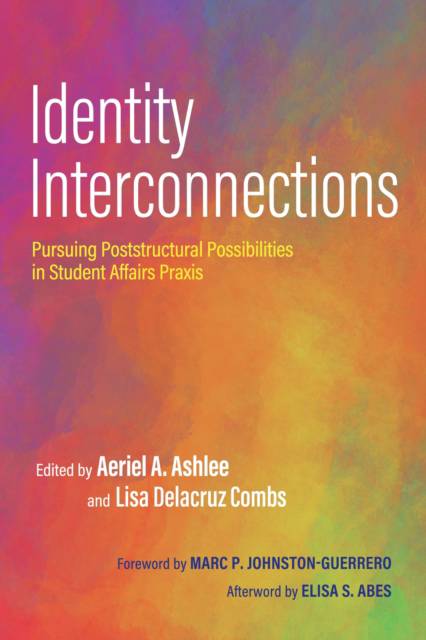
- Retrait gratuit dans votre magasin Club
- 7.000.000 titres dans notre catalogue
- Payer en toute sécurité
- Toujours un magasin près de chez vous
- Retrait gratuit dans votre magasin Club
- 7.000.0000 titres dans notre catalogue
- Payer en toute sécurité
- Toujours un magasin près de chez vous
Description
Co-published with This book advocates an approach the authors call Identity Interconnections as a way of moving considerations of identity differences and commonalities from theory to socially just action in student affairs practice.Through pursuing complex commonalities expansive enough to hold both similarities and differences, student affairs educators can ethically consider identity interconnections in such a way that does not diminish difference, but instead recognizes points of difference as opportunities for social justice action. By pursuing radical interconnectivity, student affairs educators can advance an interdependent understanding of inherited systems of power; recognizing the ways in which all systems (and thus all oppression, and all liberation) are interconnected. This interconnected insight can enable student affairs educators to extend beyond binary and oppositional thinking, and in turn, give rise to the formation of new coalitions. Finally, by listening with raw openness (allowing themselves, and encouraging their students, to be changed by others' experiences), student affairs educators can facilitate identity development and social justice action as interrelated endeavors.The editors have heard comments like, "This is all great in theory, but how can student affairs practitioners actually apply this?" This book answers that question by providing a theoretical framework and multiple practical examples for employing identity interconnections as expansive approaches to identity development and social justice action in student affairs.
Spécifications
Parties prenantes
- Editeur:
Contenu
- Nombre de pages :
- 183
- Langue:
- Anglais
- Collection :
Caractéristiques
- EAN:
- 9781642673449
- Date de parution :
- 26-08-22
- Format:
- Livre relié
- Format numérique:
- Genaaid
- Dimensions :
- 157 mm x 231 mm
- Poids :
- 589 g

Les avis
Nous publions uniquement les avis qui respectent les conditions requises. Consultez nos conditions pour les avis.





